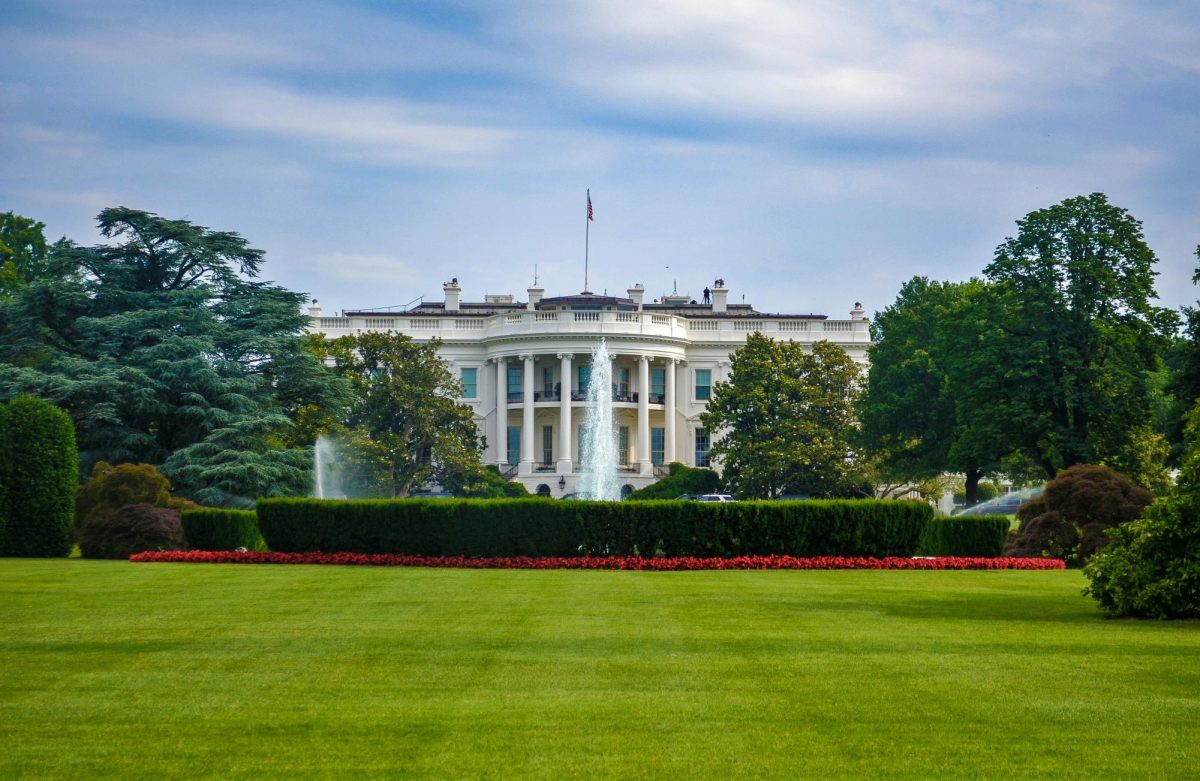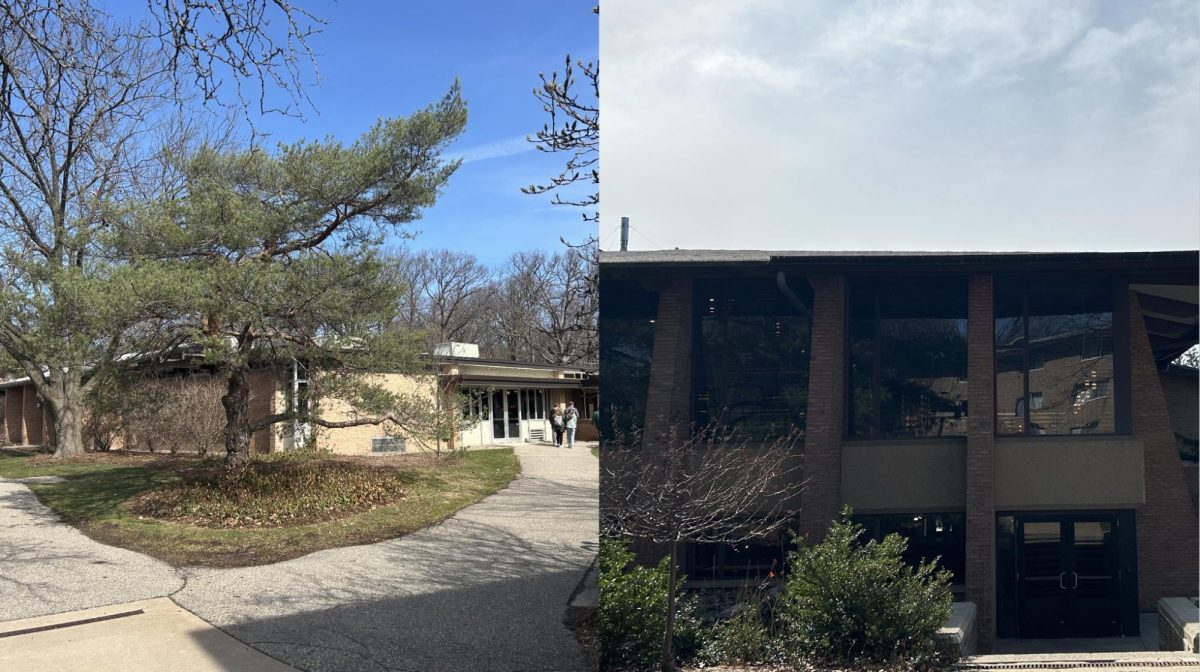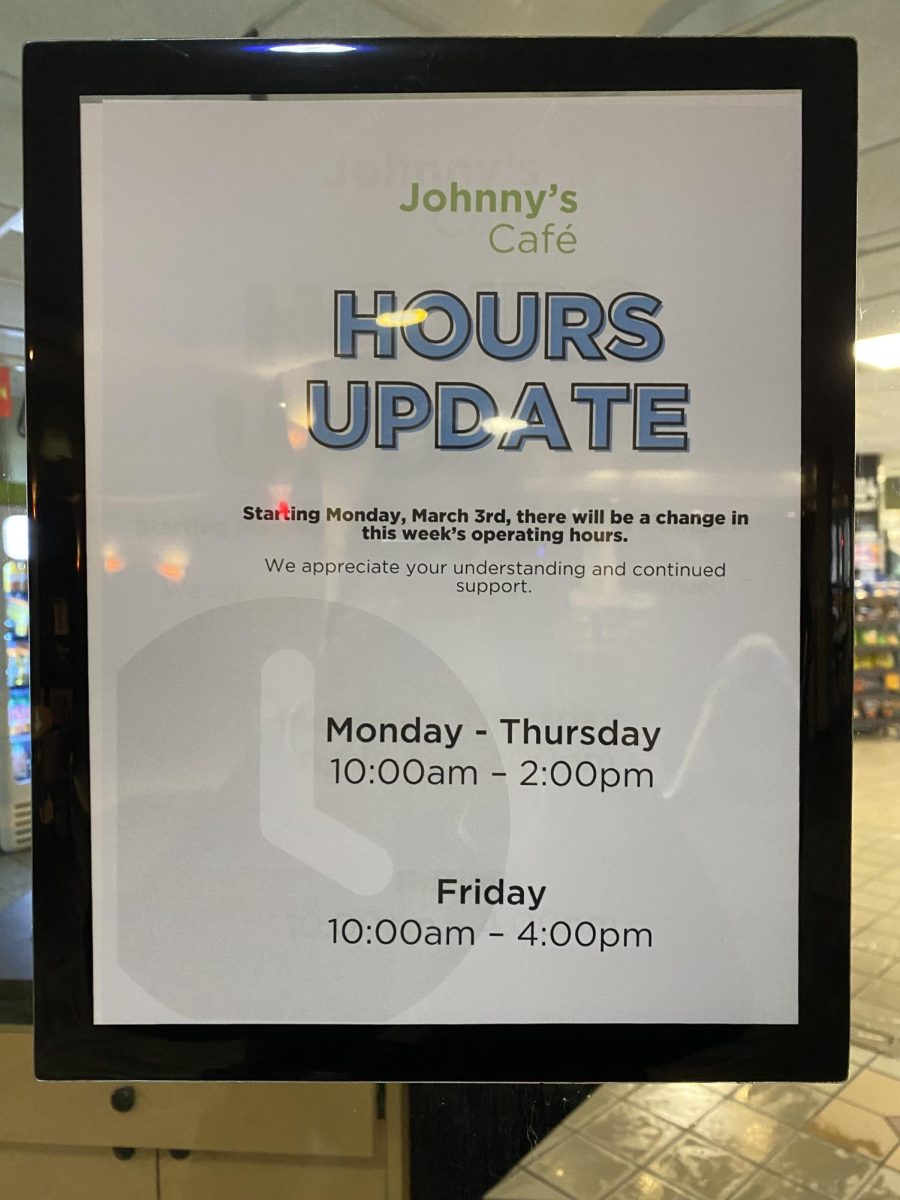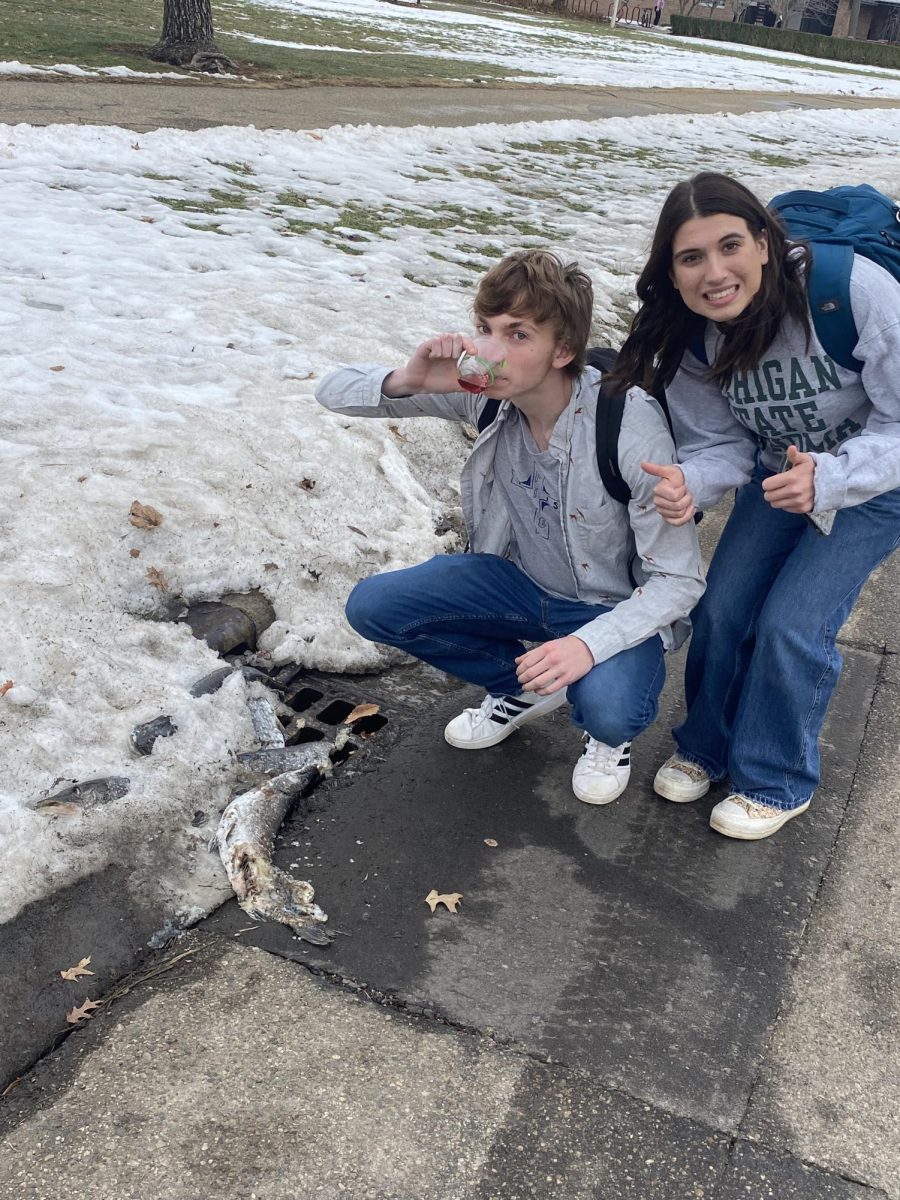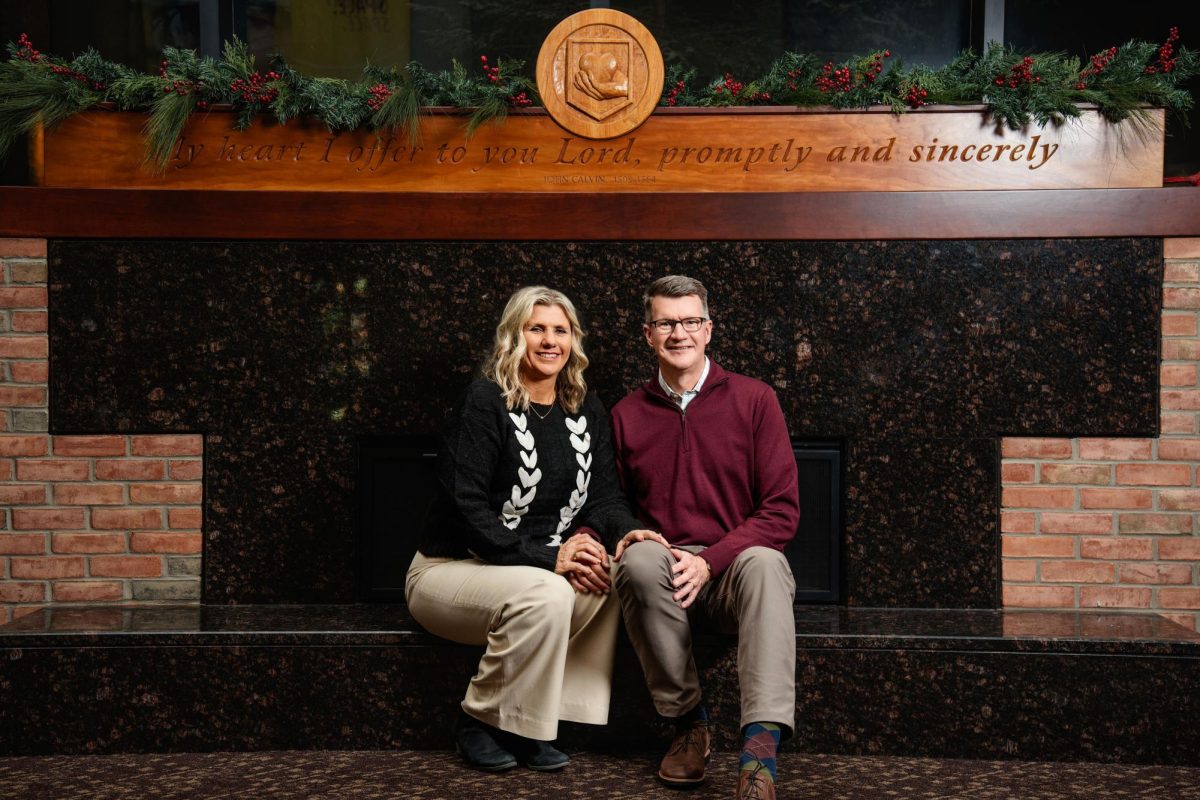Title IX — a piece of legislation passed in 1972 and amended numerous times over the last 50 years — prohibits “discrimination on the basis of sex in all education programs and activities operated by recipients of federal funds,” according to the Department of Education’s (DoE’s) Office for Civil Rights (OCR). Title IX legislation began with an emphasis on providing equal academic and athletic opportunities for women and men and grew to encompass other issues of sex discrimination that prevent access to education, including sexual harassment, harassment and bullying, sexual violence and retaliation.
The standards and specifications for a Title IX complaint are specific, and Calvin’s Safer Spaces Policy offers further protection in the case of non-Title IX eligible complaints. In an effort to illuminate Title IX and Calvin’s Safer Spaces Policy, Chimes took a deep dive into policy documents and previous high-profile Title IX cases in the state of Michigan.
What constitutes a Title IX offense?
A Title IX offense must involve sex discrimination, which according to the Safer Spaces Policy is “conduct based upon an individual’s sex that excludes an individual from participation in, denies the individual the benefits of, or treats the individual differently in an education program or activity.”
“Issue areas” regarding sex discrimination, according to the DoE’s OCR includes harassment and bullying, pregnant or parenting students, athletic opportunities and benefits and retaliation.
Harassment and bullying conduct “may take many forms, including verbal acts and name-calling; graphic and written statements, which may include use of cell phones or the Internet; or other conduct that may be physically threatening, harmful or humiliating,” according to the OCR. If said harassment and bullying creates a hostile environment preventing equal access, schools “must take prompt and effective steps” aimed at solving the problem according to the OCR.
The prohibition of retaliatory acts — such as the complainant being given a failing grade — described under “retaliation” means that complainants cannot be acted against for exercising their Title IX rights, according to the OCR.
Sexual harassment is another form of sex discrimination, and under Title IX there are three kinds of sexual harassment: quid pro quo harassment, hostile environment harassment and harassment also covered under the Violence Against Women Act (VAWA) — sexual assault, domestic violence, dating violence and stalking.
Quid pro quo harassment is when “an employee of the University, including a student-employee, conditions the provision of an aid, benefit or service of the University on an individual’s participation in unwelcome sexual conduct.” Sexual conduct could include a number of different things, including “sexual advances, requests for sexual favors, sexually motivated physical contact or other verbal, nonverbal or physical conduct or communication of a sexual nature,” according to Safer Spaces Policy.
Hostile environment harassment is when “unwelcome conduct on the basis of sex” is perpetuated to such a severe extent that a reasonable person finds it to “effectively den[y] a person equal access to the University’s education program or activity.”
Understanding Calvin’s Safer Spaces Policy
Calvin’s Safer Spaces Policy not only applies to all sexual misconduct that is listed in Title IX but also covers instances of sexual misconduct committed by or against university community members that is not included within Title IX, as stated in section three of the Policy.
Sexual misconduct that falls outside Title IX includes instances of sexual harassment and other similar situations that “occur outside the University’s education program or activity or against a person outside the United States,” or instances that do not reach the level of a Title IX violation according to the Safer Spaces Policy.
In addition to covering all areas of sexual misconduct, section two of the Safer Spaces Policy notes that under federal anti-discrimination laws, “the University does not unlawfully discriminate on the basis of sex, race, color, national origin, age, height, weight, in its education programs and activities, in employment policies and practices and all other areas of the University.”
While the Safer Spaces Policy denounces many forms of discrimination, it acknowledges in section two of the Policy that Calvin is religiously exempted from “certain laws and regulations concerning discrimination” since the university is a faith-based institution. Because of this exemption, Calvin “maintains the right, with regard to its Community Life Policies, employment and other matters, to uphold and apply its religious beliefs related to, among other issues, marriage, sex (gender), gender identity, sexual orientation and sexual activity,” according to the Policy.
What happens when a complaint is brought forward?
At Calvin, there are six main stages of addressing a Title IX complaint, according to the Safer Spaces Policy.
- “A review of the formal complaint and notice of allegations to the parties,” which should generally happen within ten calendar days
- An investigation which can take up to 50 calendar days
- “A review of directly-related evidence and investigator consideration of evidence response statements,” which can take 17 calendar days
- “A review of the investigation report and written response” over five calendar days
- “A live hearing and determination” which can take 25 calendar days
- An appeal process which can take 20 calendar days
Before the first review step, the complainant speaks with the Title IX coordinator in a preliminary meeting, where they are given options for support and walked through their rights — such as non-retaliation and the right to an advisor — while the Title IX coordinator “gain[s] a basic understanding of the nature and circumstances of the report or formal complaint” to see if the complaint is within the purview of Safer Spaces and requires a formal complaint to be made. The review “is not intended to be an investigation interview,” according to the Policy.
If the allegations are within the purview of the Safer Spaces Policy and “if the formal complaint alleges Sexual Misconduct, the Title IX Coordinator will provide a written notice of allegations to the parties who are known,” according to the Policy. Once they are notified, the Safer Spaces coordinator meets with the respondent (the person accused of committing violations) and provides them with an understanding of their rights in this situation.
Title IX policy — both at Calvin and in the larger Title IX context — emphasizes equal rights on the part of the complainant and the respondent. Importantly, there is a “presumption of non-responsibility” on the part of the respondent, which means they are not considered responsible for a policy violation until after a determination by the Title IX hearing officer/decision maker (appointed by the Title IX coordinator) which concludes that there was a “preponderance of evidence” that made it “more likely than not” that the respondent committed the policy violation.
There are formal and informal resolution processes; for allegations of a significant nature, informal resolutions are often not possible.
In a formal resolution process, an investigation is conducted, a report is compiled and it is sent to both the complainant and the respondent, who are each given the opportunity to respond in writing to directly related evidence as well as the investigative report itself. The chance to write a rebuttal to each of the response statements is also offered. The complaint and subsequent documents are then given to the Title IX hearing officer/decision maker who facilitates a live hearing during which the advisor to both the complainant and the respondent are questioned.
If the respondent is considered responsible, the Title IX hearing officer/decision maker then decides which sanctions or remedial actions are to be imposed. Sanctions for students include various consequences such as warnings, suspensions, loss of scholarships and potential revocation of a degree, among others. Sanctions for employees are similarly diverse, ranging from warnings to required training courses to demotion, termination and more. Specific sanctions are not mandated by Title IX policy (though institutions do have to report a range of possible enforcement options), but are left for the institution to establish in accordance with “the best interest of its educational environment,” according to a document of questions and answers on Title IX policy from the DoE.
Finally, either party may submit an appeal –– under certain limitations — to reconsider the allegations and investigative reports.
Questions remain about the Boer resignation process
A dearth of information about the process by which former president Boer resigned leaves some faculty wanting more information.
According to faculty members who attended an all-faculty assembly on Tuesday, March 19 — as well as information in the initial email from the board of trustees — the extent of information disseminated to faculty is thus: allegations were brought forward, a process was initiated, a resignation was offered, and the resignation was accepted. The “process” initiated is largely unknown at this time.
The initial email from the Board of Trustees (BOT) informing students of Boer’s resignation mentioned Title IX twice, and said that they “immediately engaged outside experts to ensure that Calvin University responded to the report in compliance with our policy and legal requirements, including Title IX.” The email also articulated that the BOT took its “responsibility to provide an environment free from discrimination, harassment and retaliation very seriously and continually strive[s] to promptly and thoroughly respond to allegations of misconduct.”
At the all-faculty assembly on March 19, university officials “would not confirm” that Title IX was one of the relevant policies in the dismissal of former president Wiebe Boer, a faculty member at the assembly told Chimes.
At that assembly, Provost Noah Toly spoke in response to “governance questions,” he said. Toly told Chimes he explained “what complimentary lanes…cabinet and the board [are] in so that people would have some sense about how changes like this unfold and who stewards which parts of the transitions.”
According to a faculty member at the meeting, the board was specifically mentioned as the only body who hires and oversees the president.
Title IX’s evolution on the federal and state level
According to Elisha Marr, gender studies director and sociology professor, Title IX has changed greatly since its creation in 1972. “It’s always changing over time,” Marr told Chimes. Even right now, as Marr pointed out, the Biden Administration is hoping to add proposed changes to Title IX.
In May 2020, the Trump Administration’s DoE brought about changes to Title IX, including new protections for accused individuals, according to CNN. Provisions added include changes “that allow those accused of harassment or assault to question evidence and cross-examine their accusers” and a more limited definition of “sexual misconduct on campuses.”
Biden’s proposed changes have the potential to continue this cycle of change. According to NPR, in June 2022, Biden’s DoE announced plans to reinstate Title IX regulations that the Trump Administration rescinded, and it also proposed additions to Title IX. These proposals include changes aimed to “combat sexual discrimination in schools by boosting victim protections and modifying language to include sexual orientation and gender identity for LGBTQI+ students.” These proposals have yet to go into effect.
Not only can Title IX change on the federal level, but Title IX enforcement has changed over the decades, sometimes influenced by past handlings of Title IX reports and investigations, particularly in the state of Michigan.
The mishandling of a Title IX investigation regarding Larry Nassar — a sports doctor hired at MSU in 1997, and trainer and physician for the USA Gymnastics Team for about 18 years — at Michigan State University in 2014 had astronomical consequences on both the livelihoods of hundreds of young women and girls, but also on the level of enforcement universities put into their Title IX investigations.
According to PBS NewsHour, 2014, a recent MSU graduate filed a Title IX complaint against Nassar. After a three-month long Title IX investigation and notification of the university’s police department requesting them to conduct a criminal investigation, investigators found no evidence of the complainant’s accusation.
Four years later in 2018, Nassar “was sentenced up to 40 to 175 years in prison… after more than 150 women and girls said in court that he sexually abused them over the past two decades,” according to CNN. At this point, Nassar had “already been sentenced to 60 years in prison for federal child pornography charges.” Accusations against Nassar skyrocketed after former gymnast Rachael Denhollander spoke publicly about Nassar’s abuse in the Indy Star.
According to Marr, MSU’s mishandling of Nassar’s sexual misconduct changed the way the state of Michigan enforces Title IX. “It has shown the importance of external investigations,” Marr told Chimes. “It’s shown the importance of believing survivors.”
A recent example of MSU carrying out Title IX investigations can be seen in the case of Mel Tucker, former head coach for MSU’s football team, who was fired in September 2023 as a result of a Title IX investigation that looked into Tucker’s sexual harassment of Brenda Tracy, an activist and rape survivor who was hired by MSU “to share her story with the football team,” according to NBC News. MSU completed the Title IX investigation in July 2023 and fired Tucker a few months later. During the investigation, MSU allowed Tucker to continue coaching and recruiting new players.
With the legacy of Nassar’s abuse looming over MSU, Marr noted that the university employed an external investigator for the investigation of Tucker. “Michigan State’s trying to do everything right now,” though she hinted that the university still has room for improvement in how it handles its investigations. “I don’t think Michigan State handled Tucker as well as they could have, but way better than they handled Nassar,” Marr told Chimes.
The widespread impact of Nassar’s crimes has also pushed schools like the University of Michigan (U of M) to encourage transparency in its Title IX investigations.
2022 proved to be an eventful year for the U of M. Not only did a Title IX investigation result in the university firing former president Mark Schlissel in January for having an “inappropriate relationship” with a subordinate, according to CNN, but U of M also ended up paying $490 million to about 1050 victims to rectify the decades of abuse caused by one of the school’s former sports doctors, Robert Anderson, according to in NBC News.
Marr believes that the University of Michigan’s response to the resurgence of allegations against Anderson shows the impact Nassar’s case has had on recent Title IX investigations on college campuses. “I think…if there had been no Larry Nassar, I think U of M would have tried to bury the Robert Anderson thing and probably would have tried to fight back against the reporters more,” Marr told Chimes.
Looking ahead to continued Title IX changes
It is unclear whether Calvin conducted a Title IX investigation into the complaints received regarding Boer. However, the Board of Trustees said in their Feb. 26 email that the report did not include allegations of “sexually explicit communication or physical contact.”
Many factors make up Title IX, and Calvin University has implemented additional measures against forms of sexual misconduct.
The upcoming presidential election, no matter who wins, will likely provoke changes in the legislation. Different presidential administrations and Title IX investigations have challenged and shaped American understanding of how Title IX should function and who it should serve.
Biden and Trump’s polarizing views on how Title IX should look and function could create an uncertain future for Title IX, Marr said. “We have no idea what’s going to happen in this election year and what will be happening next year,” she told Chimes.



